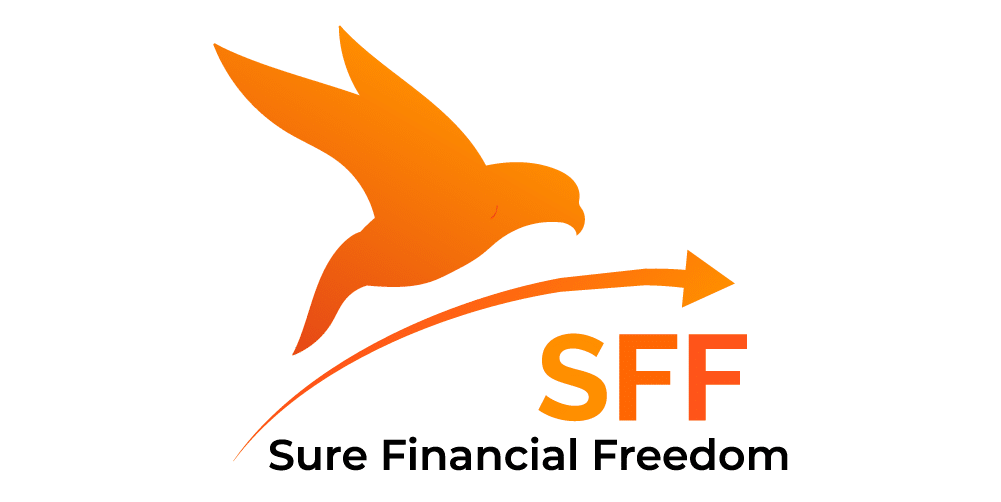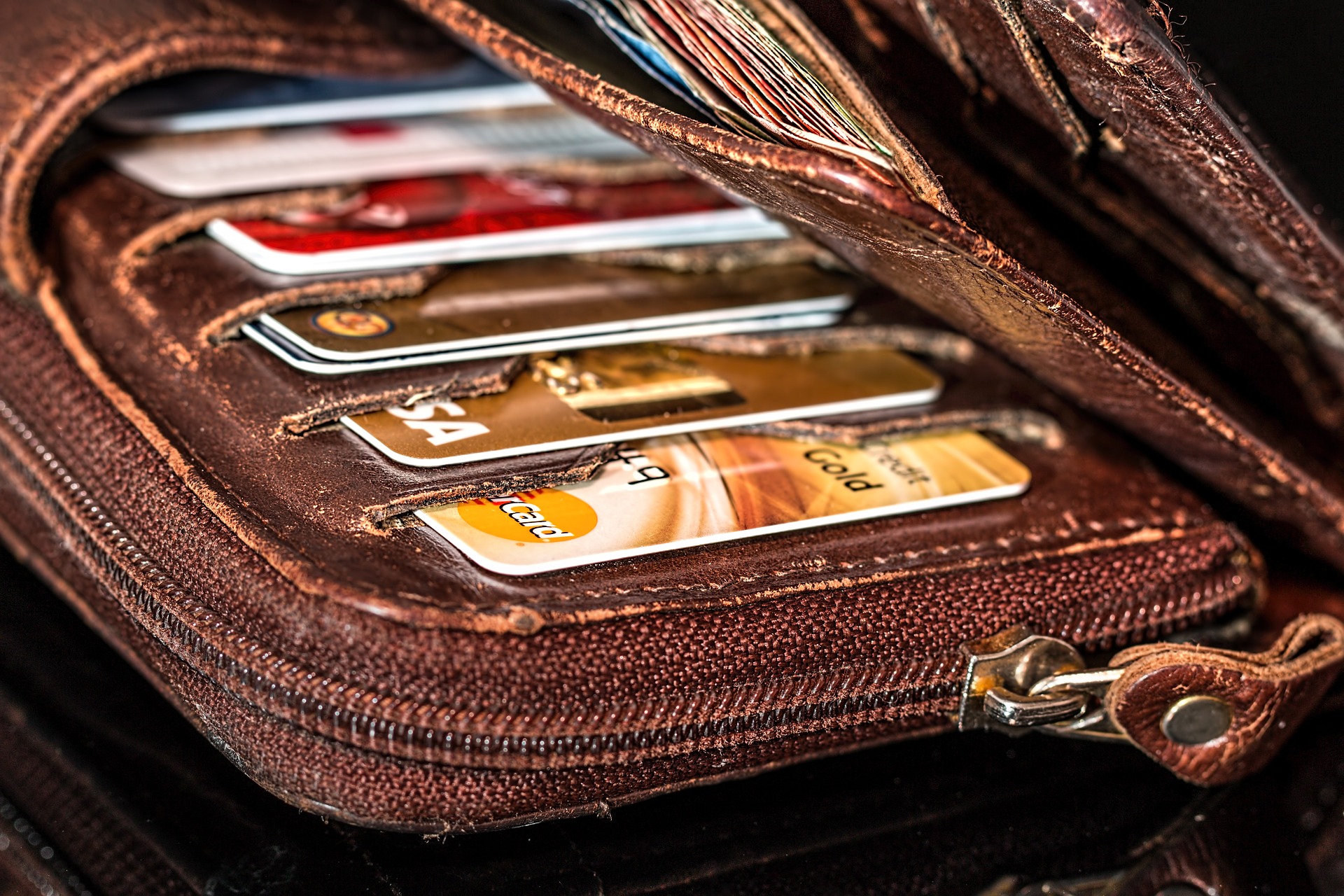After this pandemic, we all are worried about the financial future. Chances are you have accumulated some debts.
How nice it could be if you have a few months savings already, you could avoid this financial pressure off your shoulder.
What if there was a system which would equip you for future financial stress. You don’t have to worry about falling off the financial cliff.
Better late than never.
If you ever wanted to get effective debt management advice, Dave’s baby steps would be much helpful to you.
If you are a Christian by faith, you probably wouldn’t want to miss his advice about money. He is the guru of biblical money.
Dave is a solid guy when it comes to financial advice. He is famous for his budgeting and debt management advices in America.
His books are sold for more than 11 million copies worldwide. He is a money magician.
It’s quite unbelievable to admit that he established a $4 million real state portfolio at 26 only.
Despite losing all his fortune, he regained again within short period of time. He discovered some solid steps.
After the downfall, he began to teach people how to manage their money more efficiently and secure a good financially stable life.
He wanted to make people know what steps can make them financially independent. He wants people to be wealthy enough to look after their family and their retirement plans.
Also, he inspires people to share the wealth with others and become an excellent example to the world.
He spreads life-changing messages and hosts a national radio show. He has 14 million listeners each week in more than 600 radio shows and stations.
He created rock solid baby steps. These are easy to follow to manage your finance.
Why should we care about his baby steps?
Look I got your point. You might be thinking these are baby steps. I need something advanced which will work for me.
Believe me, when I say baby steps, I mean these are absolute essential steps to build up your steeping stone. Let’s find out some other benefits-
- Easy to Master
It doesn’t matter which background you come from if you are finance noobs or graduate. The baby steps are designed for all kinds of people who earn and spend money.
They are straightforward and easy to understand. Also, any person can follow these steps easily by just giving it a try.
- Free but valuable
These steps are found free on internet. If you don’t buy the book, then this is free of cost learning for you.
And if you buy the book and understand the concepts more deeply, it does bear a cost, but the cost is mere compared to the service you’ll be getting.
Also, you don’t need any financial expertise or need anyone to teach you these steps. You can understand the learning process by yourself.
- A giant step for your financial future
You want to create a secured financial future. You might be thinking that you need financial advisor to sort your finance. You need baby steps. Your small step today will cement your financial future.
Now, lets discover the baby steps.
Dave Ramsey Baby Steps
Baby Step 1 – Get a $1,000 Emergency Fund for future
Baby Step 2 – Pay Off Your Debts in Order of Smallest to Largest, ignoring percentage of interest
Baby Step 3 – Build an Emergency Fund of Three to Six Months of Expenses
Baby Step 4 – Put 15% of your salary in the Retirement plan
Baby Step 5 – Save money for Kids’ College fees
Baby Step 6 – Pay Off House Costs Early Now
Baby Step 7 – Build Wealth and Give Generously to others
Baby Step One: Get a $1,000 Emergency Fund for future
The first step is to gather $1,000 in an emergency fund. The amount can be more than $1,000 if you can afford it, but it should not be less than that.
You can keep it as cash or deposit in a bank account. People with an average income should strive to save $1,000 emergency fund. If it becomes too difficult, then manage to save this amount by any means.
You can just cut down the useless expenses of your life and save it in an emergency fund.
Is $1,000 enough for an emergency fund?
You may disagree, but the truth is that $1,000 is enough for an emergency fund. It is enough to work when we need the money badly, health emergencies, repairing your car, paying an oversized lone, buying foods after losing your job.
So, $1,000 will be enough to handle any small or medium unwanted incidents of your life.
Why $1,000 and not more than that?
I believe it’s more for your psychology.
It does have a positive note; imagine if I ask a middle-income man to gather $10,000 in a month! Will they be able to do so? No, right?
Precisely, the start of everything should be comfortable so that our brain doesn’t just ignore it and decide not to act on it, hearing the first step itself!
How to gather the $1,000 and not spend it?
For collecting the total fund of $1,000, you can do several things. If your salary is a fair amount of $30,000 or more than this, this should not be a problem for you to save $1,000 and keep it an emergency fund. But what if your income is less than this or you need 98% of your income and you can’t save $1,000.
Then you can take these steps:
- Cut down your unnecessary expenses.
- Give up luxury items such as eating out for the next 2/3 months.
- Take a small loan from a friend of yours. It will give you a mental confirmation.
- Sell your unwanted items on eBay and collect the money.
By following these steps, you can accumulate the fund and deposit in a bank to avoid spending it. By depositing the money in a bank, you can keep it safe, and you won’t be able to spend it on any other useless things.
Baby Step Two: Pay Off Your Debts in Order of Smallest to Largest, ignoring percentage of interest
After being done with the first part, banking $1,000 in an emergency fund, you will need to identify your debts and then organize them accordingly from smallest to largest.
You will repay the smallest debt first, then the largest ones later. The method is designed like this because it will make you kill off smallest debt first. You will start feeling motivated to pay off all debt.
But why smallest to largest?
This method is called debt snowfall, where we eliminate every debt with time passing. When we pay off the smallest loan first and then the second smaller one. The largest loan is repaid last.
When you pay off the smallest debt, you take the minimum payment from that and then put it onwards the next smallest debt. You will continue this until all your debts are paid off except for mortgages.
What about interest rates?
This method doesn’t consider interest rates or any compensation costs. These things aren’t the things to be tensed of, and we can handle these.
The goal of this method is to get rid of your debt as soon as possible. So, if we go for interest rates, the repayment of debts become harder than it is. But this should be said that if you have a high debt/income ratio, this method might not attract you.
What if I go bankrupt?
If you think you will become bankrupt, then you need to reconsider doing this. As you are in such a moment, so you need to stop paying off your unsecured debts. First, pay the secured debts to stop bankruptcy.
Ignore credit card payments, personal loans, debt from relatives, and pay off then debts that will cost you bankruptcy. And finally, try to avoid debt at any cost.
Baby Step Three: Build an Emergency Fund of Three to Six Months of Expenses
So far you have an emergency fund of $1,000, and your total debts are melting away. So, what should be your next target? Any guess?
Now you need to put your money aside for an emergency fund.
How much should I save?
You may want to save an amount equal to the gross salary of 3-6 month. If your monthly salary is $5,000, your savings should be at least $15,000 or the highest $30,000 in your account. This will be saved for future emergencies.
Any emergency might arise at any time. For God’s forbid, you might lose your job or have an accident; your family member may fall into coma. Life is uncertain, so this precaution should be taken.
Will it be time-consuming?
You aren’t going to save for the emergency in a month. It will take time. It may take twelve to sixteen months to accumulate the amount. It would be best if you have some patience. Good things do take time, so it would be. Though it’s time-consuming, it’s worth it for the time and sacrifices you will make. If two years of sacrifice can give you a lifetime of security, how can you ignore it!
How can I save the money fast?
You can save money fast by only hard work and true determination. You must cut down your luxury and expensive hobbies for some time and stop unnecessary expenses.
Sometimes you need to choose between eating at home or going out. Or you need to make your own meal to take at work. The more diligent you are in saving money, you can save more for your emergency.
Baby Step Four: Put 15% of your salary in the Retirement plan
After making the plan, we need to think of the retirement plan also. Nobody wants to depend on others, even when they get old. We need a retirement plan; otherwise, we will have no security after retirement. We will not be financially independent.
Why should we save 15%?
We should save 15% of our salary to have a secured financial state. 15% of your salary should surely go to the retirement plan. This is a standard one to follow. Remember, I think at this stage, and you must save 15%, no more or no less than that.
Should I invest the money in the portfolio or not?
You should save or invest the money in the portfolio. Remember one thing; the portfolio is the first one to follow. It would be best if you made a portfolio of mutual funds, gold, real estate, and then after determining your preferences, you will invest your money there. This is the main thing. Never put all your eggs in one basket as if the basket fall; you will lose everything.
What should be in our portfolio?
So first determine the amount, how much should we save. Like if you get $30,000 as a salary, 15% of it is $4,500. So you can invest in gold, real estate, mutual funds, the stock market, treasury bonds. You can make a portfolio for yourself from these and make a perfect portfolio for yourself.
Baby Step Five: Save money for Kids’ College fees
Nowadays, the cost of education for children is high. Even the cost is harder to pay amidst all the household expenses. It’s a huge amount of expense that might fall on you suddenly.
What will happen if you don’t save money for College fees
If you escape the plan of saving money for college fees, then you will end up going in too much pressure when your kids will go to college. College fees are huge, and people struggle to pay the fees and often feel the heat. Even people need to take educational loans to pay the fees.
How much should I save for this?
We should save at least 15℅ for College fees. And we do need to keep in mind that the percentage may vary with your children’s number. If you don’t have a child, you may skip this part. But you do have a child, and they are going to school now. It’s high time you should get started with your savings plan; otherwise, it’ll be too late.
Which method should we use?
We can use 529 College Savings plans to accumulate the fund. 529 College Savings Plan enables you to outlay tax payments and withdraw the payments and earnings tax-free for academic expenditures, tuition, compartment and board, fees, and other education requirements. So this is a good method to use for college fees savings.
Baby Step Six: Pay Off House Costs Early Now
Let’s see your progress now! You have an emergency fund, retirement plan saving, college fees plan saving, getting debt free.
After cutting off all these things, if you still have some extra cash, it’s time to pay off the house cost or mortgage.
It’s hard to still pay off mortgages even with other goals; most people who follow Dave Ramsey’s plan manage to pay off their house within the seventh year.
So, it is one of the important steps to follow.
How is paying off these costs more efficiently?
This is the final stage of money management or planning. Many of you live in a house that you have is taken on the mortgage.
So, after you have looked at all the baby steps above, the last thing remaining on the list is the paying off mortgage.
Once you pay off your mortgage, you will gain momentum, and be a financially independent person.
Those who live in a rented house end up paying too much. Total amount of rent for 30 year is usually more than the actual house price. So, if you pay off the mortgage, it will save you tons of interest payment.
Ultimately, you will get to live free or get return on your investment at much higher rate.
How can I repay my mortgage faster?
We can repay the mortgage in many ways. One is refinancing your home loan to a lower rate mortgage. This will save you lots of interest.
Secondly, if you double the monthly payment, then you will be paying less interest. Even this will enable you to pay mortgages faster.
Advance payments will allow you to become financially independent. You can enjoy the secured future.
Baby Step Seven: Build Wealth and Give Generously to others
Now you are in the final steps of the Dave Ramsey’s Baby Steps.
It is time to assemble your wealth and distribute it to others, leave a birthright for your children or the ones you love, and help others with the money you have built up.
This step is the final one and the most important one. This is an ongoing one that doesn’t have an end or have a requirement.
We aimed to become financially independent, and after all these steps, we are financially independent now.
Now the thing we need to do is give back the wealth that can help others. If this feels like a blessing you’d like to leave behind, here are a few tips for building wealth and giving back to others truly need it, and you can help them out with this—
Donating Brings Happiness to you and others
We all think that money can’t bring happiness. Well, this isn’t right. Money can buy happiness.
Imagine you don’t have money; how can you purchase something to eat? Will you be happy when you are starving? No, right!
This is the thing Dave Ramsey wanted to highlight. After we are satisfied with what we have, we should donate and give away the wealth we have gathered.
Otherwise, this will have no value at all. When you give away money and help someone, the happiness you’ll get can’t be measured in numbers. So, who is benefited here?
Find Charities to Support and enhance.
Donating to charities is one of the many bounties that keeps on providing happiness and life to others. This makes you feel financially good when you pay fewer taxes, spiritually good when you help our the agencies and the persons affiliated with it and psychologically when you see their happy face and realize you gave something back to earth.
You can support widows, abandoned children, abandoned parents, people who are homeless. This will make you feel the peace within yourself that you really have a legacy on this earth, and even when you will expire, people will remember you through your good deeds.
Is the Dave Ramsey Plan Right for Your Student Loans?
The baby steps bring a ton of sense for student loan borrowers. While the baby steps aren’t a financially good match always, they are emotionally desirable. If you don’t have a plan to pay off your obligation, start with Dave Ramsey’s baby steps.
You will be beneficial from this method but how much output you will get is immeasurable and not sure. You may discover something reasonable, but the Dave Ramsey plan will get you delighted and moving in a straight way your goal.
Conclusion:
Well, now that you know the Dave Ramsey’s seven baby steps. You might be thinking how this can help you now, you need something quick solution.
Its true that it might not make you financially independent right now. It has the potentiality to make you filthy rich in future.
This concept works!
All you need to do is follow the steps diligently and give yourself some time.
Surely, after six months, your financial position will change.







